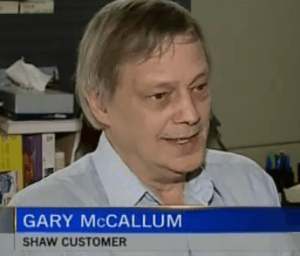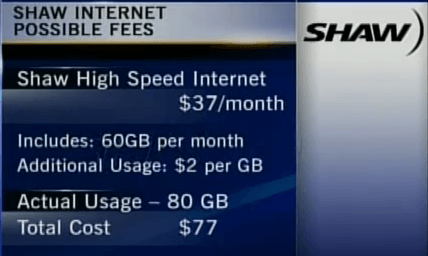
Shocked onlookers moments after the earthquake struck downtown Christchurch
A major magnitude 6.3 earthquake has devastated the Canterbury region of southeast New Zealand, particularly the central business district of the city of Christchurch, knocking out power, water, sewer, and several telecommunications networks across the region. The wireless networks that remain have been so overburdened, government officials have declared use of those networks limited to emergency use only.
Two aftershocks — one magnitude 5.6 and another 5.5 — shook Christchurch within hours of the initial 6.3 earthquake, causing damaged buildings to crumble, including parts of the 130-year-old Christchurch Cathedral. Its spire toppled into the city square, falling onto throngs of tourists who ran from the building in terror as the temblor struck.
Dozens are dead, with scores more injured, particularly in the Christchurch city center, where the quake struck just after lunch. Shocking raw video has appeared on national television showing bloody bodies strewn amongst the rubble, and hearts are broken over stories such as the death of nine month old toddler who survived the quake, but not the large flat panel television that toppled down on him during an aftershock.
Telecommunications services were reduced to a state of virtual unusability following the quake because of cable cuts and congestion, as Prime Minister John Key informed Parliament the government was forced to initially rely on a sketchy satellite link to speak with civil defense officials in the city of 376,000.
The city’s local television station — CTV, was reduced to rubble as the seven-story building pancaked, tossing some employees working on the fifth floor into the middle of Madras Street below. They were the lucky ones, surviving as astonished onlookers ran up to help.
National media has described the Canterbury earthquake as “New Zealand’s darkest day,” and most radio and television stations still on the air have ceased regular programming to relay the country’s National service from Radio/TV New Zealand, or the country’s national news-talk network Newstalk ZB.
New Zealand’s Internet services are functioning, but sporadic in many locations. The national public broadcaster, Radio/TV New Zealand, is relying on its international shortwave radio service Radio New Zealand International to get its signal out to the rest of the world as its live Internet streams initially failed. Many other broadcasters in Christchurch have lost their links to transmitters, or temporarily lacked power to stay on the air.
 The region’s landline telephone network remains functional where cable cuts have not interrupted service, but since many New Zealanders rely on cell phones, the country’s wireless networks quickly were overwhelmed with worried callers. Large parts of New Zealand’s cell phone network in the south is now completely reliant on battery backup power, due to widespread power disruptions. Keeping those sites operational is critical, as scores of office workers in Christchurch are texting messages indicating they are still alive, but trapped in damaged or collapsed buildings.
The region’s landline telephone network remains functional where cable cuts have not interrupted service, but since many New Zealanders rely on cell phones, the country’s wireless networks quickly were overwhelmed with worried callers. Large parts of New Zealand’s cell phone network in the south is now completely reliant on battery backup power, due to widespread power disruptions. Keeping those sites operational is critical, as scores of office workers in Christchurch are texting messages indicating they are still alive, but trapped in damaged or collapsed buildings.
Emergency generators are being pressed into service as providers recognize their wireless networks are often the only reliable link residents now have with the rest of the country. Some cell sites operated by Telecom New Zealand (TNZ), Vodafone and 2Degrees equipped with solar or battery backup systems began to fail last night.
“We’re asking our customers in Christchurch to have patience if they lose service. Although we can’t identify which sites will lose battery power or when, we know that they are generally in good shape so can be placed back in service once power becomes available,” says 2degrees CEO Eric Hertz.
TNZ and their biggest competitor Vodafone have set aside their rivalry and are coordinating efforts to keep the country’s networks up and running. Staff of both companies have been largely ordered to remain home, as technicians on duty at the time of the quake pull overtime duty. Emergency 111 service, today answered by operators in Wellington 190 miles away, is now prioritized and customers have been told by government officials that cell phone use in the affected region should be limited for emergency calls only.
 All public payphones in Christchurch discontinued paid service as of this morning — all calls are now free.
All public payphones in Christchurch discontinued paid service as of this morning — all calls are now free.
Vodafone reports SMS text messaging service between networks is not functioning at this time. That means Vodafone customers cannot send or receive text messages to anyone outside of Vodafone’s own network for the time being.
All three carriers are recommending wireless customers across the entire country use text messaging rather than calling to keep congestion to a minimum. Text messages rarely overload wireless networks. Most providers are also waiving contract cancellation penalties for customers whose homes or businesses were heavily damaged or destroyed, and will forward calls to functioning phone numbers at no charge.
Cable modem service in Christchurch is disrupted wherever cable cuts exist. DSL from TNZ is also sporadic for the same reasons.
While power is expected to return across Canterbury as daybreak now arrives, officials warn outages in essential services will persist for days, if not weeks, in some particularly hard-hit areas.
Live Coverage
- NewstalkZB – broadcasting on all FM frequencies in Christchurch controlled by “RadioNetwork”
- Radio Live
- Radio New Zealand (streaming is sporadic/non-functional at this time)
- TV New Zealand (Choose “Live International Stream” when available)
[flv width=”640″ height=”380″]http://www.phillipdampier.com/video/TVNZ Quake Damage 2-22-11.flv[/flv]
TV New Zealand presented coverage moments after the quake occurred. Some of these reports and raw video contain extremely graphic and disturbing imagery. (30 minutes)
 Canadians may soon get a license to steal, if songwriters have their way.
Canadians may soon get a license to steal, if songwriters have their way. This is not the first time the group has proposed a “music license fee.” In 2007, the group tried to amend the Canadian Copyright Act to force service providers themselves to pay a tax on behalf of their file sharing customers. The effort never made it out of Parliament.
This is not the first time the group has proposed a “music license fee.” In 2007, the group tried to amend the Canadian Copyright Act to force service providers themselves to pay a tax on behalf of their file sharing customers. The effort never made it out of Parliament.

 Subscribe
Subscribe









